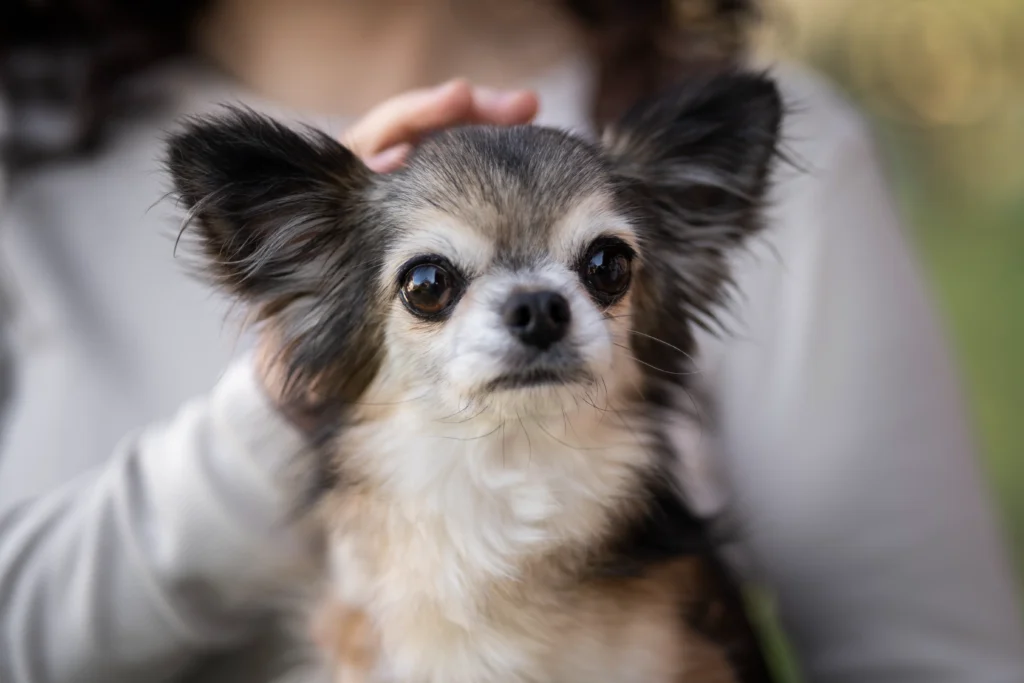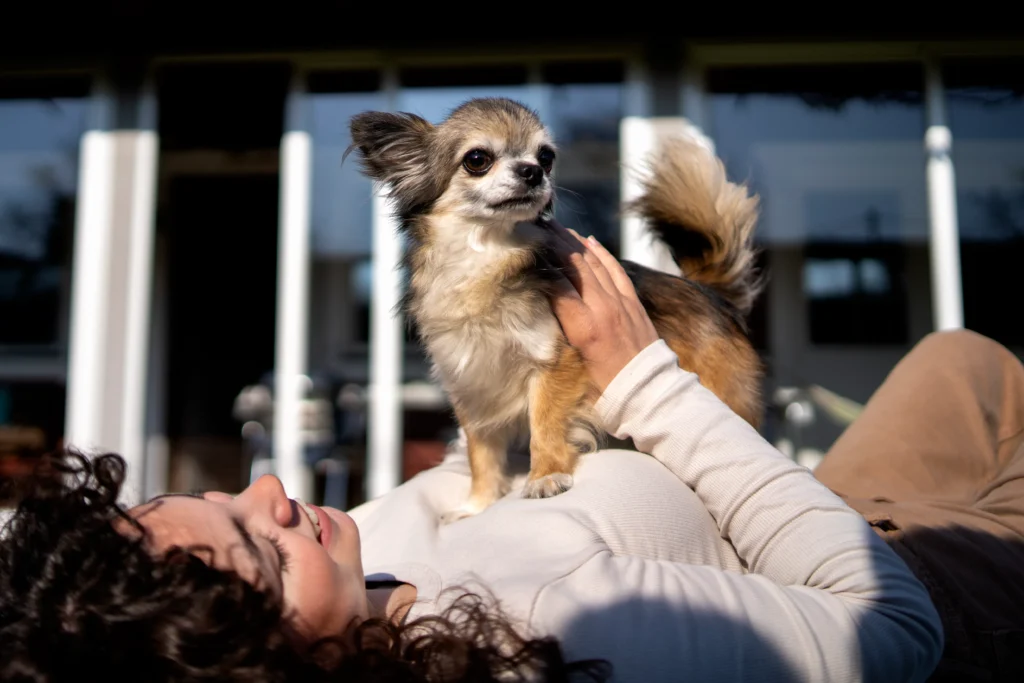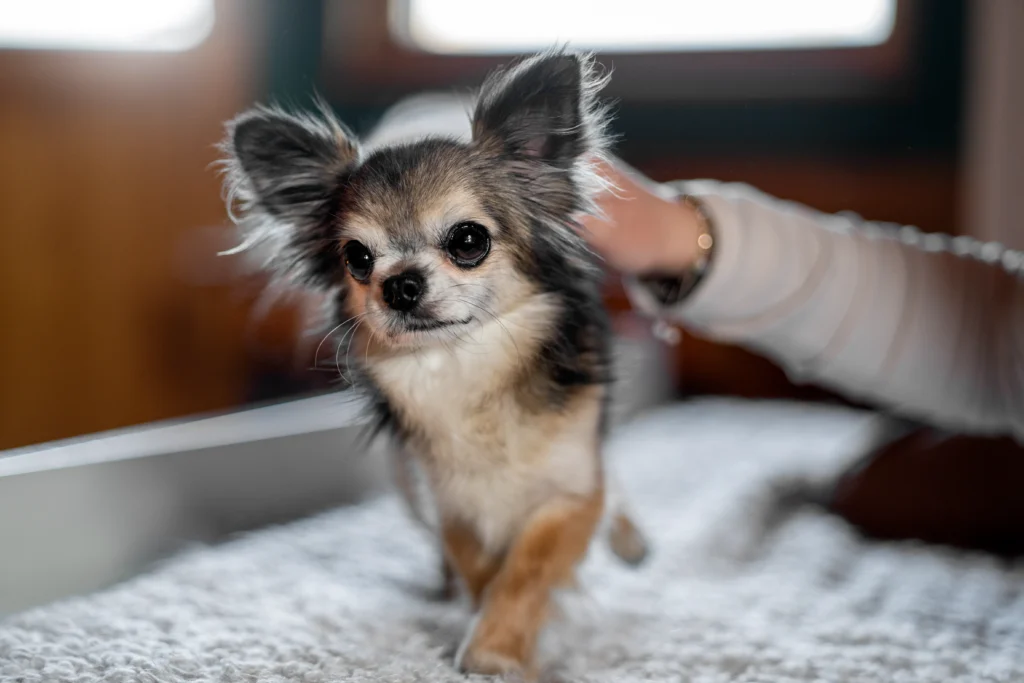Introduction
Breeding chihuahua dogs is both an art and a science that requires extensive knowledge, proper planning, and dedicated care. As one of the smallest dog breeds in the world, chihuahuas have unique characteristics and needs that potential breeders must understand. Unfortunately, the internet is rife with misinformation about breeding chihuahua dogs, leading many aspiring breeders down a dangerous path.
Whether you’re considering breeding chihuahua dogs as a hobby, to preserve the breed standard, or to establish a reputable breeding program, it’s crucial to separate fact from fiction. The spread of myths about breeding chihuahua dogs has led to health issues, genetic problems, and welfare concerns for these tiny yet spirited companions.
In this comprehensive guide, we’ll debunk five dangerous myths about breeding chihuahua dogs that continue to circulate among novice breeders. By addressing these misconceptions head-on, we aim to promote responsible breeding practices that prioritize the health and well-being of both parent dogs and puppies.
Breeding chihuahua dogs comes with significant responsibilities that extend far beyond simply allowing two dogs to mate. It requires a thorough understanding of genetics, health testing, proper nutrition, whelping preparation, and puppy socialization. By the end of this article, you’ll have a clearer picture of what ethical breeding chihuahua dogs actually entails and how to avoid common pitfalls that compromise canine welfare.
Let’s dive deep into these myths and uncover the truths about breeding chihuahua dogs that every responsible breeder should know.

Myth #1: Any Chihuahua Can Be Bred
One of the most prevalent and dangerous myths about breeding chihuahua dogs is that any chihuahua, regardless of health, temperament, or conformation, can and should be bred. This misconception has led to numerous problems within the breed, including the perpetuation of genetic health issues and undesirable temperament traits.
The Reality of Responsible Selection When Breeding Chihuahua Dogs
When it comes to breeding chihuahua dogs ethically, not every dog should contribute to the gene pool. Responsible breeding chihuahua dogs programs start with careful selection of breeding stock based on several crucial factors:
Health Screening
Before considering breeding chihuahua dogs, comprehensive health testing is essential. Quality breeding stock should be screened for:
- Patellar luxation (kneecap dislocation)
- Heart conditions, particularly heart murmurs and valve issues
- Eye disorders like progressive retinal atrophy
- Dental issues, which are common in the breed
- Hydrocephalus (water on the brain)
- Hypoglycemia tendencies
According to a study published in the Journal of Veterinary Medicine, chihuahuas with a history of these health problems should be excluded from breeding programs to prevent passing these conditions to offspring.
Conformation to Breed Standard
When breeding chihuahua dogs, adherence to breed standards is crucial. The American Kennel Club and other kennel organizations have established specific guidelines that define what constitutes an ideal chihuahua in terms of:
- Size (typically not exceeding 6 pounds)
- Head shape (the distinctive “apple head” or “deer head”)
- Ear set and carriage
- Body proportions
- Movement and gait
Breeding chihuahua dogs that significantly deviate from these standards can lead to structural problems that affect quality of life.
Temperament Assessment
The temperament of dogs used for breeding chihuahua dogs programs is equally important. While chihuahuas are known for being alert, confident, and sometimes feisty, excessive nervousness, aggression, or fearfulness are undesirable traits that can be passed to puppies.
According to canine behavior specialist Dr. Sarah Wilson, “When breeding chihuahua dogs, temperament should be a primary consideration. Nervous or aggressive traits are highly heritable and can create generations of dogs with behavioral challenges.”
Age Considerations
Another aspect of the “any chihuahua can be bred” myth involves age. Breeding chihuahua-dogs too young (before 2 years of age) or too old (typically after 6-7 years) increases health risks for both the mother and puppies.
Dr. Jennifer Coates, veterinary advisor for PetMD, notes: “Female chihuahuas should not be bred during their first heat cycle. Their bodies are simply not mature enough for the demands of pregnancy and whelping, regardless of whether they’re technically capable of reproduction.”
Responsible breeding chihuahua-dogs practices involve waiting until the female is fully mature, usually after 2 years of age, when growth plates have closed and health assessments can be more accurately performed.
By debunking the myth that any chihuahua can be bred, we emphasize that breeding chihuahua dogs ethically requires careful selection based on health, conformation, temperament, and age. This selective approach helps ensure the long-term wellbeing of the breed and produces puppies with the best chance for healthy, happy lives.
Myth #2: Breeding Chihuahua-Dogs Is Easy and Profitable
Another dangerous myth surrounding breeding chihuahua dogs is that it’s a simple, hands-off process that generates easy profit. This misconception leads many unprepared individuals to venture into breeding chihuahua-dogs without understanding the complexities, responsibilities, and financial investments involved.
The Complex Reality of Breeding Chihuahua-Dogs

High-Risk Pregnancies and Deliveries
Breeding chihuahua dogs comes with significant medical risks. As one of the smallest dog breeds, chihuahuas often experience complications during pregnancy and delivery:
- C-section rates in chihuahuas are among the highest of all dog breeds, with research from the Royal Veterinary College showing that approximately 40% of chihuahua births require surgical intervention.
- Dystocia (difficult birth) is common when breeding chihuahua dogs, particularly with puppies having larger heads relative to the birth canal.
- Eclampsia (milk fever) occurs more frequently in small breeds like chihuahuas.
Dr. Elizabeth Berliner, Director of Shelter Medicine at Cornell University College of Veterinary Medicine, states: “When breeding chihuahua dogs, breeders must be prepared for emergency situations that require immediate veterinary intervention. The size difference between puppies’ heads and the mother’s pelvis can create life-threatening situations requiring C-sections.”
Extensive Time Investment
Breeding chihuahua dogs properly requires a significant time commitment:
- Pre-breeding health assessments and genetic testing
- Monitoring heat cycles and determining optimal breeding timing
- Pregnancy management with regular veterinary check-ups
- 24/7 monitoring during the whelping process
- Intensive care for newborn puppies for at least 8-12 weeks
- Socialization, training, and managing puppy development
- Screening potential adopters to ensure good homes
Many who start breeding chihuahua dogs underestimate the round-the-clock care required for a mother with newborn puppies. Chihuahua puppies are particularly vulnerable to hypoglycemia and hypothermia, requiring constant monitoring and possible intervention.
Financial Reality of Breeding Chihuahua Dogs
The financial aspect of breeding chihuahua dogs is often drastically misunderstood:
| Expense Category | Typical Cost Range |
|---|---|
| Health Testing (parents) | $500-$1,500 |
| Stud Fee or Artificial Insemination | $500-$1,500 |
| Prenatal Veterinary Care | $300-$600 |
| Whelping Supplies | $200-$500 |
| Emergency C-Section | $1,500-$3,000 |
| Puppy Vaccinations/Deworming | $300-$500 per litter |
| Registration Fees | $100-$300 |
| Quality Nutrition | $300-$600 |
According to the American Kennel Club, the average cost of properly breeding chihuahua dogs and raising a single litter to 8 weeks can range from $3,500 to $8,000 or more—especially if complications arise.
Many aspiring breeders focusing on breeding chihuahua dogs fail to account for these costs, along with potential emergency situations that can quickly escalate expenses.
Emotional Challenges
The emotional toll of breeding chihuahua dogs is rarely discussed:
- The stress of managing difficult births
- Dealing with puppy mortality (which can be higher in toy breeds)
- Ensuring proper placement in suitable homes
- Potential for lifelong responsibility if homes fall through
As PetsPump.com’s article on responsible dog breeding explains, ethical breeders often commit to taking back any dog they’ve bred at any point in its life if the owner can no longer care for it—a potentially lifelong commitment.
When the reality of breeding chihuahua dogs is fully understood, it becomes clear that this is not a casual undertaking or reliable profit-generating venture. Responsible breeding chihuahua dogs programs require significant knowledge, resources, time, and emotional resilience—making it a labor of love rather than a simple moneymaking enterprise.
Myth #3: Breeding Teacup Chihuahuas Is Desirable

One of the most dangerous trends in breeding chihuahua dogs is the deliberate production of “teacup” chihuahuas—dogs bred to be significantly smaller than the breed standard. This practice is not only unrecognized by major kennel clubs but poses serious health risks to the dogs involved.
The Truth About “Teacup” Breeding Chihuahua Dogs
No Official Recognition
First and foremost, it’s important to understand that “teacup” is not an official classification recognized by the American Kennel Club or other reputable canine organizations. The AKC breed standard for chihuahuas specifies a weight not exceeding 6 pounds, with no minimum weight requirement. When breeding chihuahua dogs according to legitimate standards, the focus is on overall health and proper conformation rather than achieving extremely small size.
Health Consequences of Extreme Miniaturization
When breeding chihuahua dogs for unusually small size (“teacup” varieties typically weighing under 3 pounds), breeders often select the runts from multiple litters—the smallest puppies that are often the weakest genetically. This practice of breeding chihuahua dogs for extreme smallness can lead to numerous health issues:
- Fragility and injury risk: Bones in extremely small chihuahuas are exceptionally fragile, leading to frequent fractures from normal activities like jumping off furniture.
- Hydrocephalus: When breeding chihuahua dogs for small skulls, there’s an increased risk of hydrocephalus (fluid on the brain), which can cause neurological issues, seizures, and premature death.
- Hypoglycemia: Ultra-small chihuahuas have difficulty maintaining normal blood sugar levels, leading to dangerous hypoglycemic episodes that can be fatal if not immediately addressed.
- Heart defects: Breeding chihuahua dogs for extremely small size often results in higher rates of heart abnormalities.
- Dental overcrowding: Smaller skulls with the same number of teeth lead to severe dental issues, including retained puppy teeth, malocclusion, and early tooth loss.
According to Dr. Karen Becker, a proactive and integrative wellness veterinarian, “There’s nothing cute about breeding chihuahua dogs with genetic defects that cause lifelong suffering. ‘Teacup’ breeding practices frequently result in dogs with compromised immune systems, shortened lifespans, and chronic health conditions.”
Shorter Lifespans
Research published in the Journal of Small Animal Practice indicates that while standard chihuahuas often live 14-16 years, those bred to be extremely small (“teacups”) frequently have lifespans shortened by 3-5 years due to congenital issues and increased vulnerability to environmental stressors.
Reproductive Challenges
When breeding chihuahua dogs of extremely small size, the females often cannot deliver puppies naturally due to their tiny pelvises relative to puppy head size. This necessitates C-sections, which carry additional risks for such small dogs.
The Chihuahua Club of America has taken a firm stance against breeding chihuahua dogs specifically for unusually small size, stating: “Breeding for extreme smallness can compromise the health and welfare of the dogs and is contrary to responsible breeding practices.”
Ethical Alternatives in Breeding Chihuahua Dogs
Responsible breeding chihuahua dogs programs focus on:
- Breeding for health, temperament, and conformation to breed standards
- Selecting breeding stock that falls within the normal size range for the breed
- Prioritizing genetic diversity to reduce inherited health conditions
- Health testing all breeding stock for known genetic issues in the breed
As outlined in PetsPump’s guide to small dog breeds, ethical breeding practices prioritize the dog’s welfare over marketable traits like extreme smallness.
By debunking the myth that “teacup” breeding chihuahua dogs is desirable, we hope to encourage greater understanding of the serious welfare concerns associated with this practice and promote responsible breeding that prioritizes health over extreme physical traits.
Myth #4: Breeding Chihuahua Dogs Doesn’t Require Health Testing

A persistent and harmful myth in breeding chihuahua dogs is that this breed doesn’t require the same rigorous health testing as larger breeds. This misconception has contributed to the prevalence of genetic health issues within the chihuahua population.
The Critical Importance of Health Testing When Breeding Chihuahua Dogs
Common Genetic Conditions in Chihuahuas
Despite their small size, chihuahuas are predisposed to numerous health conditions that can be screened for before breeding:
- Patellar Luxation: Studies from the Orthopedic Foundation for Animals (OFA) indicate that chihuahuas have one of the highest rates of patellar luxation (kneecap dislocation) among all dog breeds, with approximately 25% of chihuahuas affected to some degree. When breeding chihuahua dogs, both parents should be screened for this condition.
- Cardiac Issues: Heart murmurs and valve problems are common in the breed. According to research published in the Journal of Veterinary Cardiology, chihuahuas have higher rates of mitral valve disease than many other breeds.
- Eye Disorders: Progressive retinal atrophy, lens luxation, and corneal ulcers occur with notable frequency in chihuahuas. The American College of Veterinary Ophthalmologists recommends eye certification examinations before breeding chihuahua dogs.
- Dental Problems: The small jaw size of chihuahuas predisposes them to dental overcrowding, retained deciduous teeth, and periodontal disease. Dental evaluations should be part of health screening when breeding chihuahua dogs.
- Neurological Conditions: Hydrocephalus and syringomyelia occur at higher rates in chihuahuas than in many other breeds, particularly in apple-headed chihuahuas with more domed skulls.
- Tracheal Collapse: This condition affects many small breeds including chihuahuas, causing breathing difficulties that worsen over time.
Recommended Health Tests for Breeding Chihuahua Dogs
The Chihuahua Club of America and canine health experts recommend the following tests before breeding chihuahua dogs:
| Test | Purpose | Recommended Age |
|---|---|---|
| Patellar Examination | Detect knee abnormalities | 1 year+ |
| Cardiac Evaluation | Identify heart murmurs/defects | 1 year+ |
| CERF Eye Examination | Screen for hereditary eye conditions | 1 year+ |
| Dental Evaluation | Assess dental health and jaw alignment | 1 year+ |
| DNA Testing | Screen for breed-specific genetic conditions | Any age |
| Bile Acid Test | Screen for liver shunt | 6 months+ |
Dr. Robert Hutchison, a veterinary specialist focusing on reproductive health, emphasizes: “When breeding chihuahua dogs, comprehensive health testing is not optional—it’s essential. Many genetic conditions in chihuahuas can be prevented through proper screening and selective breeding.”
The Cost of Neglecting Health Testing
Failing to perform health testing when breeding chihuahua dogs can have severe consequences:
- Perpetuation of genetic disease: Breeding carriers of genetic conditions can spread these issues throughout the breed population.
- Financial burden on owners: Treatment for conditions like patellar luxation can cost $1,500-$3,000 per knee, while managing cardiac conditions often requires lifelong medication.
- Emotional toll: Owners who purchase puppies from untested parents often face heartbreak when health issues emerge later.
- Shorter lifespans: Chihuahuas from health-tested lineages typically live longer, healthier lives than those from untested breeding stock.
According to a comprehensive study published in The Veterinary Journal, breeding chihuahua dogs without proper health screening contributes significantly to the prevalence of genetic diseases within the breed.
Ethical Testing Practices When Breeding Chihuahua Dogs
Responsible breeders committed to ethical breeding chihuahua dogs practices:
- Conduct all recommended health tests before breeding
- Share test results openly with potential puppy buyers
- Exclude dogs with serious heritable conditions from breeding programs
- Work with veterinary specialists to interpret complex test results
- Participate in breed health databases to track genetics across generations
As noted in PetsPump’s article on canine genetic health, responsible breeding chihuahua dogs programs prioritize health testing as a cornerstone of ethical breeding.
By debunking the myth that breeding chihuahua dogs doesn’t require health testing, we hope to encourage higher standards in breeding practices that will improve the overall health and longevity of the breed.
Myth #5: Breeding Chihuahua Dogs with Other Small Breeds Creates Healthier Puppies
A dangerous misconception in the world of dog breeding is that crossing chihuahuas with other small breeds automatically results in healthier puppies through “hybrid vigor.” While there can be benefits to outcrossing in some scenarios, the reality of breeding chihuahua dogs with other breeds is far more complex than many realize.
Understanding Crossbreeding in Chihuahuas
The Hybrid Vigor Misunderstanding
The term “hybrid vigor” (heterosis) refers to the potential health benefits that can occur when genetically distinct populations are crossed. However, when it comes to breeding chihuahua dogs with other purebreds:
- Not automatic: Hybrid vigor isn’t guaranteed simply by crossing two different breeds.
- Unpredictable outcomes: When breeding chihuahua dogs with other breeds, puppies might inherit health issues from both parent breeds rather than avoiding them.
- First generation only: Any health benefits from heterosis typically apply only to the first generation (F1) crosses. Breeding these mixed-breed dogs together often results in unpredictable trait expression and health profiles.
Dr. Carol Beuchat, Scientific Director of the Institute of Canine Biology, explains: “The misconception that breeding chihuahua dogs with another breed automatically creates healthier puppies overlooks the fact that both parent breeds may carry genetic predispositions to the same health issues, such as dental problems or patellar luxation.”
Common Crossbreeds and Health Considerations
Popular chihuahua crosses include:
- Chihuahua x Pomeranian (“Pomchi”): When breeding chihuahua dogs with Pomeranians, puppies may face combined risks for dental problems, patellar luxation, and tracheal collapse from both parent breeds.
- Chihuahua x Dachshund (“Chiweenie”): This cross can combine the chihuahua’s risk for dental disease with the dachshund’s predisposition for intervertebral disc disease.
- Chihuahua x Pug (“Chug”): When breeding chihuahua dogs with brachycephalic breeds like pugs, respiratory issues can be perpetuated or even worsened in offspring.
- Chihuahua x Yorkshire Terrier (“Chorkie”): Both parent breeds are prone to dental issues and hypoglycemia, potentially compounding these problems.
According to research published in PLOS Genetics, indiscriminate crossbreeding without health testing can actually increase health risks when the same deleterious genes exist in both parent breeds.
Responsible Crossbreeding vs. Designer Dogs
There’s an important distinction between:
- Purposeful crossbreeding programs: These involve health-tested parents, careful selection for specific traits, and long-term breeding goals focused on health and temperament.
- Designer dog production: Often motivated by marketability rather than health, with minimal health testing and little consideration for genetic compatibility when breeding chihuahua dogs with other breeds.
The Veterinary Genetics Laboratory at UC Davis notes that responsible crossbreeding requires the same rigorous health testing as purebred breeding—something often overlooked in the “designer dog” market.
Health Testing Remains Essential
When breeding chihuahua dogs with other breeds, health testing becomes even more critical:
- Both parent breeds should be screened for their breed-specific health conditions
- Genetic counseling may be necessary to understand how different genetic issues might interact
- Long-term health monitoring of offspring informs future breeding decisions
As explained on PetsPump’s article about mixed-breed health, responsible crossbreeding starts with fully health-tested parent dogs, regardless of whether they’re purebred or mixed.
The Goal: Healthy Dogs, Not Labels
The focus when breeding chihuahua dogs—whether with other chihuahuas or different breeds—should always be health, temperament, and quality of life rather than novelty or marketability.
Dr. Lisa Lippman, a prominent veterinarian specializing in preventive care, observes: “When breeding chihuahua dogs with other breeds, the question shouldn’t be ‘Will this create a cute designer dog?’ but rather ‘Will this pairing produce puppies with a better quality of life and fewer health issues than either parent breed?'”
By debunking the myth that crossbreeding automatically improves health, we emphasize that responsible breeding chihuahua dogs practices—whether purebred or mixed—always prioritize health testing, careful selection, and the welfare of the dogs involved.
Conclusion: The Path to Responsible Breeding Chihuahua Dogs
Throughout this article, we’ve debunked five dangerous myths about breeding chihuahua dogs that continue to circulate in the dog breeding community. By addressing these misconceptions head-on, we hope to promote more responsible practices that prioritize canine health and welfare.
Key Takeaways About Breeding Chihuahua Dogs
- Selective breeding is essential: Not every chihuahua should be bred. Responsible breeding chihuahua dogs programs involve careful selection based on health, conformation, temperament, and genetic diversity.
- It’s a serious commitment: Breeding chihuahua dogs requires significant knowledge, resources, time, and emotional resilience—making it a labor of love rather than a casual hobby or reliable profit-generating venture.
- “Teacup” breeding is problematic: Breeding chihuahua dogs for extremely small size often leads to serious health issues and shortened lifespans. Responsible breeders focus on health over marketable traits like extreme smallness.
- Health testing is non-negotiable: Comprehensive health screening is essential when breeding chihuahua dogs to reduce the prevalence of genetic health issues within the breed.
- Crossbreeding isn’t a magic solution: When breeding chihuahua dogs with other breeds, health testing remains critical, and “hybrid vigor” isn’t automatically guaranteed.
The Responsibility of Breeding Chihuahua Dogs
Ethical breeding chihuahua dogs practices involve a lifelong commitment to:
- Education: Continuously learning about genetics, health, nutrition, and best practices in breeding chihuahua dogs.
- Mentorship: Working with experienced breeders who can provide guidance throughout the breeding journey.
- Community: Participating in breed clubs, health research, and initiatives that improve the overall health of chihuahuas.
- Transparency: Being honest with potential puppy buyers about health testing, genetic risks, and the challenges of owning a chihuahua.
- Accountability: Standing behind every puppy produced through breeding chihuahua dogs programs, providing lifetime support to owners.
As noted by the American Veterinary Medical Association, responsible breeding practices are essential for improving the health and welfare of all dog breeds, including chihuahuas.
Resources for Aspiring Chihuahua Breeders
If you’re considering breeding chihuahua dogs, we recommend these valuable resources:
- The Chihuahua Club of America – Offering breed-specific information, health resources, and mentorship opportunities.
- PetsPump’s Guide to Responsible Dog Breeding – Comprehensive information on ethical breeding practices.
- Orthopedic Foundation for Animals – Database of health screening results and recommended tests for breeding chihuahua dogs.
- American Kennel Club’s Breeder Education – Educational resources for responsible dog breeding.
- International Partnership for Dogs – Global resources for dog health, breeding, and welfare.
Final Thoughts on Breeding Chihuahua Dogs
Breeding chihuahua dogs is a significant responsibility that directly impacts canine welfare, the breed’s future, and the experiences of countless dog owners. By approaching breeding with knowledge, ethics, and a commitment to health, breeders can contribute positively to this beloved breed’s legacy.
Remember that the true measure of success in breeding chihuahua dogs isn’t the number of puppies produced or profits earned, but rather the health, temperament, and quality of life of the dogs you bring into the world.
If you’re passionate about chihuahuas but uncertain about breeding, consider alternative ways to contribute to the breed through rescue work, breed education, or supporting health research. The chihuahua community needs dedicated advocates in many capacities beyond breeding.
By fostering a culture of responsible breeding chihuahua dogs practices, we can work together to ensure this delightful breed continues to thrive for generations to come.
This comprehensive guide to breeding chihuahua dogs was developed to provide accurate, ethical information to aspiring and current breeders. For more information about chihuahuas and other small dog breeds, visit PetsPump.com.






